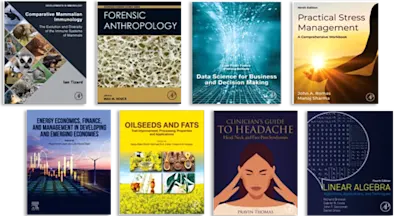
Academic Search Engines
A Quantitative Outlook
- 1st Edition - September 2, 2014
- Imprint: Chandos Publishing
- Author: Jose Luis Ortega
- Language: English
- Paperback ISBN:9 7 8 - 1 - 8 4 3 3 4 - 7 9 1 - 0
- eBook ISBN:9 7 8 - 1 - 7 8 0 6 3 - 4 7 2 - 2
Academic Search Engines intends to run through the current panorama of the academic search engines through a quantitative approach that analyses the reliability and consisten… Read more
Purchase options

Institutional subscription on ScienceDirect
Request a sales quoteAcademic Search Engines intends to run through the current panorama of the academic search engines through a quantitative approach that analyses the reliability and consistence of these services. The objective is to describe the main characteristics of these engines, to highlight their advantages and drawbacks, and to discuss the implications of these new products in the future of scientific communication and their impact on the research measurement and evaluation. In short, Academic Search Engines presents a summary view of the new challenges that the Web set to the scientific activity through the most novel and innovative searching services available on the Web.
- This is the first approach to analyze search engines exclusively addressed to the research community in an integrative handbook. The novelty, expectation and usefulness of many of these services justify their analysis
- This book is not merely a description of the web functionalities of these services; it is a scientific review of the most outstanding characteristics of each platform, discussing their significance to the scholarly communication and research evaluation
- This book introduces an original methodology based on a quantitative analysis of the covered data through the extensive use of crawlers and harvesters which allow going in depth into how these engines are working. Beside of this, a detailed descriptive review of their functionalities and a critical discussion about their use for scientific community is displayed
Librarians and Information Scientists that wish to improve their knowledge about the new search services, including reliable assessments. Researchers and scientists that desire to use these engines to find relevant information and to observe their research and networking performance
1: Introduction
- Abstract
- What is an academic search engine?
- Challenges for an academic search engine
- The evolution of academic search engines
- Future perspectives
2: CiteSeerx: a scientific engine for scientists
- Abstract
- Autonomous citation indexing
- A focus on computer science
- A searchable digital library
- Searching for authors and citations
- Parsing mistakes
- Other ‘Seers’: the CiteSeerx lab
- A pioneer in citation indexing
3: Scirus: a multi-source searcher
- Abstract
- Web pages and authoritative sources
- Crawling and data extraction
- Source filtering
- Ranking on links
- A missed opportunity
4: AMiner: science networking as an information source
- Abstract
- A networked engine
- A chaotic design
- Based on bibliographic databases
- Searching only in documents
- Exhaustive author profiles
- PatentMiner
- A half-academic search engine
5: Microsoft Academic Search: the multi-object engine
- Abstract
- The object-level vertical search engine
- Slow content updating speed
- Filtering across the directory
- A multidimensional ranking
- A composition based on profiles
- Visualization: graphs as research assessment tools
- More a directory than an engine
6: Google Scholar: on the shoulders of a giant
- Abstract
- A specialization of Google
- Feeding back its own sources
- The opacity of results
- Google Scholar’s additional services
- The most exhaustive academic search engine
7: Other academic search engines
- Abstract
- BASE
- Q-Sensei Scholar
- WorldWideScience
8: A comparative analysis
- Abstract
- Functioning
- Structure
- Coverage
- Searching
- A heterogeneous sample
9: Final remarks
- Edition: 1
- Published: September 2, 2014
- Imprint: Chandos Publishing
- Language: English
- Paperback ISBN: 9781843347910
- eBook ISBN: 9781780634722
JO